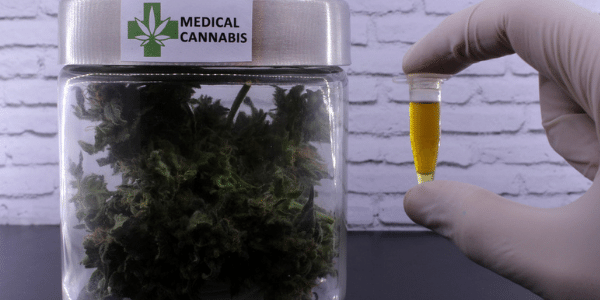
The United States is facing an interesting problem. While we are wrestling with the fallout of the COVID-19 health emergency and its impact on our economy, there is another problem brewing. Population in the United States is actually declining. Legal pot may be a factor that influences the migration of Americans to other states.
There are four main population segments in the United States. And based on 2019 data, here are the estimated number of Americans that fall into each age group:
Are you surprised to learn that the population for each generation in the United States is almost equal? Many people assume that there are more Baby Boomers, but that is not the case. And when researchers look at the problem of lagging population growth, they are looking for the reasons behind declining birth rates.
Overall, U.S. population growth has significantly slowed down. According to the U.S. Census Bureau, the country hasn’t seen such lagging population growth since the Great Depression. Yikes!
Surprisingly, out of all the states in America, there are some that show recent population growth. And if you haven’t already guessed, they are the states that have legalized adult use. Where adults over the age of 21 years can legally purchase, possess, and use cannabis.
The states seeing more people moving in from another state are the ones that have legalized adult use. There are social and economic factors that coincide with legalized marijuana that can support population growth.

Whether you live in a state that has legalized cannabis or not is the first consideration. If you are a patient with one or multiple chronic health conditions, you may want the option to use medical marijuana. Some types of symptoms can be resistant to prescription medications. And in other cases, the medications prescribed to treat chronic diseases can have nasty side effects.
Many patients know that they benefit from using marijuana for symptom management. But some people may live in a state where medical cannabis is legalized but highly restricted. For example, chronic pain may not be a qualifying health condition for legal pot. Some states only allow access to cannabis for patients in end-of-life or hospice care. Only people suffering terminal conditions.
While some states have a very restrictive medical cannabis program, others have a Low-THC program. Many states that legalized medical cannabis allows for retail dispensaries. Patients with a medical card can walk in and purchase a variety of product types and potencies. The patient receives guidance from a physician and experienced staff at the dispensary.
But in some states, there are no retail dispensaries. And there are no broad product categories for patients to choose from. In Texas, for example, patients are not issued a medical card. But they can be prescribed cannabis to a maximum dose of 1% potency, in a tincture (drops) or capsule form. And that’s it.
There are so many people moving to Texas that the state is feeling pretty good about its economic and social prospects. However, the 2021 Texas Relocation Report stated that while up to 582,000 people moved to Texas (mostly from California), another 471,000 residents moved out. And to other states.
Texas only saw a net gain of 100,000 residents in the last year. And that could be because the state’s version of legal pot (compared to other states) is inadequate for patients’ needs.
Texans moving out of the state, according to data from the Texas Realtors, targeted eight states. Texans moved to California, Colorado, Oklahoma, Georgia, Louisiana, Washington, and Arizona. Except for Georgia, the states listed have favorable and flexible medical cannabis programs.
The top ten states for outbound migration (residents moving out) in 2020 were:
Source Web 2021: 2020 Atlas Van Lines Migrations Patterns Study
The COVID-19 pandemic is shaking up a lot of things and socioeconomic factors. Perspectives have changed, along with a major shift in the labor market. Work from home is now the norm for any professional with a role that can be fulfilled remotely.
Another factor is that work-from-home arrangements allow Americans to live anywhere they want to. They can move away from expensive urban centers and cities (and states) with lower taxes and overall cost of living. And better medical or adult-use cannabis laws.

As of May 2021, the seventeen (17) states that have legalized adult-use (recreational) weed have shown the highest population growth. There are more babies being born in states with legalized weed. Quite a few more, according to a 2019 University of Connecticut study.
We can surmise that people who have access to legal weed are more relaxed. Amorous? Less depressed and able to manage mental health and chronic pain symptoms better? Then a spike in new birth rates would make sense. Happy people make more babies. And legalized cannabis makes people very happy.
If you live in a state without legal pot, these are things you think about. There may be a reason why states that have legalized recreational weed are seeing a population increase. Who wants to live in a state where you can go to prison for smoking a joint or packing a bowl? Not many people. And so, when conditions are considering some of the economic benefits of creating accommodating marijuana laws, these points should be part of the discussion.
When medical and recreational (adult-use) cannabis becomes legalized in a state, it means jobs. A surge in new employment opportunities. It also benefits other sectors such as real estate, retail, housing, and more.
Legalizing cannabis means a big positive economic boost. In February 2021, Leafly® released its fifth annual “Cannabis Industry Jobs Report.” The report (in collaboration with Whitney Economics) showed that legalized cannabis had created 321,000 full-time jobs in thirty-seven (37) states. In 2020 alone, 77,300 new jobs were created, which was a record-breaking 32% year-over-year increase.
Leafly also compared the new job creation in the cannabis sector to other major industries. The data shows that cannabis job growth nationwide is outpacing other significant professions. For instance, more marijuana-related jobs were created in the U.S. in 2020 than for dentists, aircraft pilots and engineers, paramedics and EMTs, and electrical engineers.
Population growth. Job creation and employment growth. The side effects of legal pot seem to outweigh any detriments. And when you consider that states who create accommodating medical and adult-use cannabis programs also see a drop in organized drug crime. At least in some states.
In “The Effect of State Marijuana Legalizations: 2021 Update,” states like Main and Nevada saw crime rates decreased by 90 and 178 per 100,000, respectively. National statistics find that the crime rates nationally do not increase or decrease substantially after legalization. But remain unchanged, debunking one of the great anti-legalization arguments and concerns.
No Information on MarijuanaDoctors.Com should be used to diagnose, treat, prevent or cure any disease or condition. You can view our Full Disclaimer here.